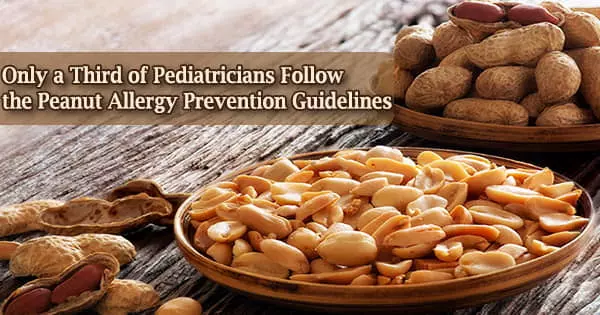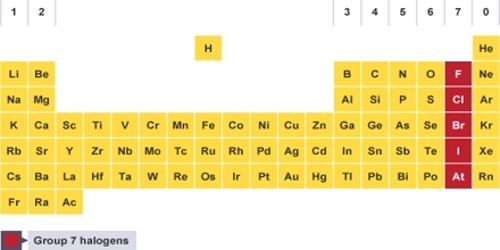According to the study published in JAMA Network Open, while 93 percent of U.S. doctors were aware of the national guidelines on peanut allergy prevention in babies, just 30 percent were fully implementing the recommended strategies, and 64 percent indicated incomplete adoption.
In order to prevent peanut allergy, the 2017 guidelines recommend assessing the risk of peanut allergy and introducing peanut-containing foods to infants’ diets at the age of 4-6 months. This is a 180-degree turn from the American Academy of Pediatrics’ recommendation that peanuts be avoided until a child is three years old.
“Our study is the first population-based survey of a large nationwide sample of U.S. pediatricians that characterizes the current practices and barriers associated with the 2017 guidelines for preventing peanut allergy through early introduction of peanut-containing food in the infant’s diet,” says lead author Ruchi Gupta, MD, MPH, pediatrician, and food allergy researcher at Ann & Robert H. Lurie Children’s Hospital of Chicago, Professor of Pediatrics (Academic General Pediatrics and Primary Care) and Medicine (Allergy and Immunology), and Director of the Center for Food Allergy and Asthma Research at Northwestern University Feinberg School of Medicine.
“We found that nearly 70 percent of pediatricians reported needing additional guideline training. Barriers to implementation are important to address since pediatricians, beginning with the 4-6 month well-child visits, can have a vital role in the reduction of peanut allergy.”
We found that nearly 70 percent of pediatricians reported needing additional guideline training. Barriers to implementation are important to address since pediatricians, beginning with the 4-6 month well-child visits, can have a vital role in the reduction of peanut allergy.
Ruchi Gupta
One of the most common causes of severe allergy episodes is peanut allergy. Even small amounts of peanuts can provoke a significant reaction in some people with peanut allergies, which can be life-threatening (anaphylaxis).
Peanut allergy is the most common food allergy among children, affecting 2.2 percent of children in the United States. It is the least commonly outgrown food allergy and is frequently accompanied with severe reactions.
Infants with severe eczema and/or egg allergies are at a higher risk of acquiring a peanut allergy. Peanut allergies commonly manifest themselves within minutes of exposure. There is compelling evidence that exposing at-risk babies to peanuts as early as 4 to 6 months of age can lower their risk of developing food allergies by up to 80%.
The National Institute of Allergy and Infectious Diseases (NIAID) issued guidelines in 2017 based on data showing early introduction of peanut-containing foods to newborns reduces the occurrence of peanut allergies.
A total of 1,781 pediatricians responded to the study. Lack of clinic time, doing in-office supervised feeding of peanut-containing food, completing peanut allergy testing, worries about the guidelines’ newness, and parental fear of allergic reactions were all identified as common hurdles to guideline implementation by Dr. Gupta and colleagues.
Pediatricians who responded also mentioned the necessity for family handouts outlining the recommendations for introducing peanuts to infants early, as well as prompts in the electronic health record.
“We need further research on forms of training and types of practice aids that are necessary to increase guideline implementation,” says Dr. Gupta.
Early administration of peanut protein, as opposed to peanut avoidance, has been found to result in a significant reduction in peanut allergy in children under the age of five. There is evidence that desensitization through peanut ingestion can help children who already have a peanut allergy.
















